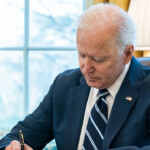From Islamabad’s point of view, the addition of its “brotherly country” — which is how Pakistan has described Turkey in an official statement — to the CPEC is expected to boost trade and add some spark to its fragile economy.
Pakistan’s Prime Minister Shehbaz Sharif has invited Turkey to join the China Pakistan Economic Corridor (CPEC), a major project under Beijing’s Belt and Road Initiative (BRI). If Ankara accepts, the bilateral project would become a trilateral one. This is expected to significantly affect the region’s key stakeholders, say analysts.
From Islamabad’s point of view, the addition of its “brotherly country” — which is how Pakistan has described Turkey in an official statement — to the CPEC is expected to boost trade and add some spark to its fragile economy.
“Turkey is not only a gateway to Europe but has had historical linkages with Pakistan that can lead to greater trade between the two countries,” says Aadil Nakhouda, Member, Economic Advisory Group of the Islamabad-based think tank PRIME Institute.
Trade between Pakistan and Turkey stood at $1.1 billion in 2022, a jump of 22.5 percent over the preceding year, per official numbers shared by Ankara. A new trade pact signed in August 2022 is aimed at expanding the trade to $5 billion within the next three years. At $321 million, Turkey is also one of the biggest sources of foreign direct investment (FDI) in Pakistan, according to the United Nations COMTRADE.
Against this backdrop, Sharif’s invitation to the Tayyip Erdogan-led regime to join the CPEC — the second such invitation within a year — is in the country’s economic interest, experts say.
Turkey’s participation in CPEC will allow Pakistan to “emerge as a major transit point for goods flowing into China, Turkey and other countries”, Nakhoda told Moneycontrol. “Turkish expertise in building infrastructure can also benefit Pakistan, and the enhanced FDI from Turkey can lead to more trade between the two countries,” he added.
From China’s perspective, Turkey’s inclusion would grant the project a global outlook, considering the latter’s geostrategic location, say analysts. Wedged between Asia and Europe, Ankara is key in Beijing’s quest to revive the ancient Silk Route, the medieval trade corridor from Kashgar to Istanbul.
“China wants its OBOR (One Belt, One Road) initiative going, and Turkey’s inclusion will have major economic and geostrategic significance,” independent researcher Sourish Ghosh said.
Although the two countries had inked BRI-related pacts in 2015, Turkey’s share in Chinese investments, under the BRI route has been as low as 0.8 percent so far, as per the China Global Investment Tracker, 2023. China’s overall investment in Turkey stood at 5.11 billion, which is miniscule compared to its global investments of $1.368 trillion.
It is felt that one of the reasons for the muted investment is Turkey speaking up on the issue of alleged atrocities committed by China against its minority Uyghur population.
“Turkish-Chinese ties have suffered as Beijing has been upset by our stance on the Turkic Uyghur issue,” Turkey’s Foreign Minister Mevlüt Çavuşoğlu said in December 2022.
By bringing Turkey onboard the CPEC, China could succeed in muzzling the protests emanating from Ankara over the Uyghur issue, as well as rejuvenate its status as a BRI partner, say experts.
New Delhi has consistently marked its opposition to the CPEC, as it passes through the disputed Pakistan-occupied-Kashmir (PoK). Last year, India had condemned the attempts to add a third party to the project.
“No third country should be involved in it. We are giving this warning in advance because it is a matter of our sovereignty,” the Ministry of External Affairs (MEA) spokesperson had cautioned in a briefing on July 28, 2022.
The remarks came a week after the Chinese foreign ministry said it “hopes to align the BRI with the development of Afghanistan and extend the CPEC to it, and share China’s development opportunities.” Beijing views Afghanistan as a potential ally with huge resources and nearly nil infrastructure.
However, Raja Gopal Chakraborti, Professor, South and Southeast Asian Studies, Calcutta University, feels Turkey joining the CPEC will not be a geopolitical setback for India. The country is known for siding with Pakistan on the Kashmir issue, and has opposed India’s entry into the Nuclear Suppliers Group, “but at the same time, it is one of India’s major trading partners”, he added. Bilateral trade between the countries stood at $10.71 billion in FY22, which was 51 percent higher than the pre-pandemic level.
Nonetheless, Turkey’s inclusion may lead to other west and central Asian countries joining the programme, and this may be of concern for India as it could lead to the formation of a new economic bloc, the professor explained.
China’s trade with the top five central Asian economies in 2022 cumulatively amounted to over $67 billion, with Kazakhstan accounting for $31 billion, Kyrgyzstan $15.5 billion, Turkmenistan $11.2 billion, Uzbekistan $9.8 billion, and Tajikistan $2 billion, as per official data.
Among west Asian countries, China’s trade with Iran topped $16 billion in 2022.
“The extension of CPEC will help all these countries. The Chinese footprint in the area is getting stronger,” Chakraborti told Moneycontrol. “It will definitely create pressure on India if such an economic bloc emerges,” he added.
A section of analysts also pointed at the possibility of Pakistan creating an economic and trading bloc, which can pressurise India to mend ties with it. They pointed towards the statements of former Pakistan prime minister Imran Khan, who hinted at opening the direct trade corridors of central Asia for India if the Kashmir conflict was resolved.
“If India gives the Kashmiris their right under the UN (resolutions), it will be greatly beneficial for Pakistan as well as for India. India can access Central Asia,” Khan, the then PM, had said in March 2021.
But even if a new economic bloc emerges due to CPEC’s extension, “I don’t think Pakistan will be able to use it as a bargaining chip with India to discuss Kashmir,” Ghosh said.
Geopolitical watchers pointed out that India, apart from marking its objection to the CPEC as it passes through PoK, was among the few countries that underlined what a debt trap the BRI could be for smaller countries.
“Connectivity initiatives must be based on universally recognised international norms, good governance, rule of law, openness, transparency, and equality. They must be financially responsible and avoid creating an unsustainable debt burden on communities,” India’s Ministry of External Affairs (MEA) had said in 2017, while explaining why India had refrained from joining the BRI Forum.
The CPEC is partly blamed for Pakistan’s worsening external debt crisis. “The loans under CPEC are economically unviable, and Pakistan is now having a hard time meeting its repayment obligations,” the Belgium-based Committee for the Abolition of Illegitimate Debt (CADTM) said in a report published in May 2023.
“If the CPEC does not generate enough growth, then Pakistan’s loans from Chinese banks risk becoming a burden,” it added.
This article was originally published by Money Control.
The views and opinions expressed above are the author’s and do not reflect those of the Free Turkish Press.


